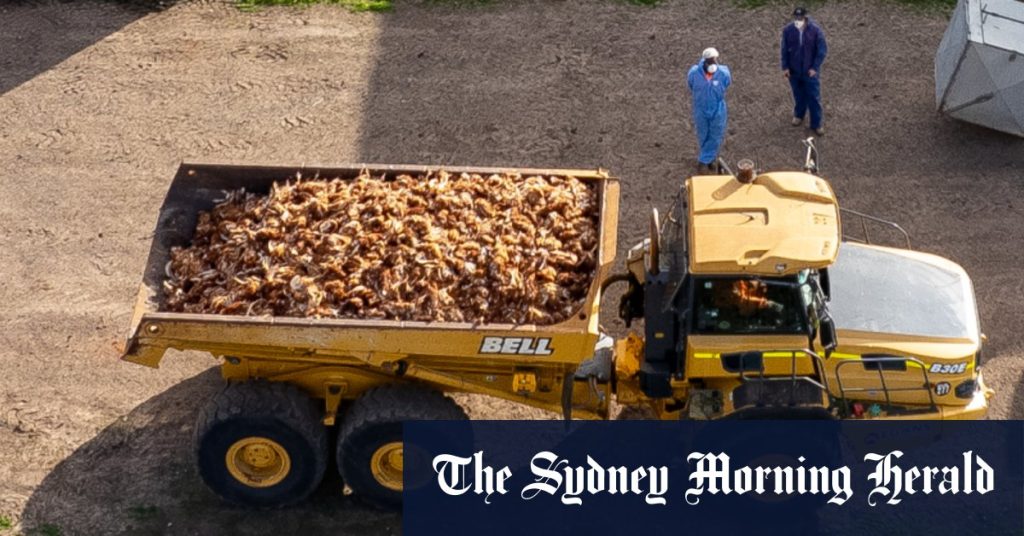On Thursday, workers were forced to cull an estimated 400,000 chickens at AVGO Eggs to stop the spread of avian flu. The deadly virus had also affected Surf Coast Eggs in Terang, with 160,000 birds destroyed. The farms shared management, staff, and machinery, making it difficult to prevent the outbreak. The companies were following all protocols, but it could be months before they can reopen, potentially impacting the cost of eggs in Victoria. A second human case of the H5N1 strain of bird flu was discovered in Michigan, transmitted by cattle.
Agriculture Victoria issued housing requirements for bird owners near the affected farms in Meredith and Terang. Poultry farmers, backyard flock owners, and bird owners within five kilometers of the farms were instructed to house their birds in cages or sheds to minimize contact with wild birds carrying the disease. While this measure can reduce the risk of avian flu spread, it cannot eliminate it. The H7N3 and H7N9 strains of avian flu are different from the H5N1 strain which has caused devastation in the US and Antarctica.
The AVGO and Surf Coast Eggs spokesman stated that the companies were working closely with Agriculture Victoria to eradicate the outbreaks safely. Despite following protocols, the spread of avian flu was difficult to prevent due to the interconnected nature of the farms. The twin outbreak in Australia coincided with a second human case of H5N1 bird flu in Michigan, showing the global impact of the disease. The cost of eggs in Victoria is likely to be affected as the farms remain closed for an extended period.
Victoria’s Chief Veterinarian, Graeme Cooke, supported the housing requirements as a sensible step to reduce direct contact between birds and wild carriers of avian flu. While it can help minimize the risk of the disease spreading, it cannot completely eliminate it. The order was necessary in light of recent avian influenza detections in the area. Different strains of avian flu have affected millions of birds worldwide, with the H5N1 variant causing significant mortality in the US and Antarctica. Australia has not yet detected H5N1 in its bird populations.
The outbreak at AVGO Eggs and Surf Coast Eggs highlighted the challenges of preventing avian flu in interconnected farms where the virus can easily spread. The cooperation between the companies and Agriculture Victoria underscored the importance of swift and coordinated action to contain the disease. The impact on egg prices in Victoria and the global reach of avian flu underscored the need for vigilance and preparedness in addressing such outbreaks. The housing requirements for bird owners near the affected farms aimed to reduce the risk of further spread of avian flu, although it cannot guarantee complete protection against the disease.
As the culling of chickens and containment measures continued, efforts to eradicate the avian flu outbreaks in Victoria intensified. The global nature of the disease, as evidenced by cases in the US and Antarctica, highlighted the need for international cooperation in monitoring and managing avian flu. The interconnectedness of poultry farms and the potential economic consequences of avian flu outbreaks underscored the importance of biosecurity measures and rapid response protocols. The ongoing situation at AVGO Eggs and Surf Coast Eggs served as a stark reminder of the threats posed by avian flu and the necessity of proactive measures to prevent its spread.


